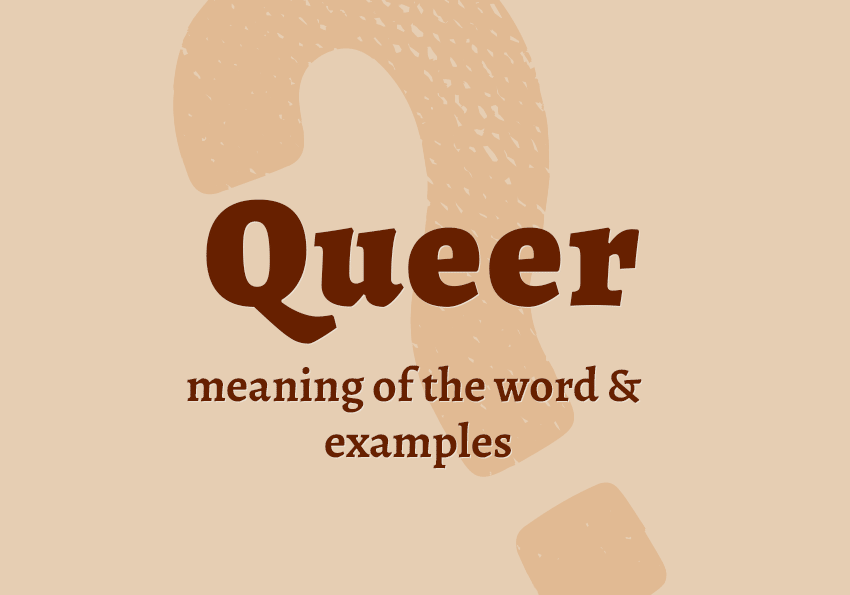What’s the meaning of queer? Definition, synonyms & examples
You might see the word queer both on the pages of any book and heatedly debated by modern scholars or activists. What does it mean and why does it have such a spectrum of meanings and uses?

The meaning of queer
Originally, the adjective queer meant “strange”, “peculiar”. However, that’s not the only meaning you’ll hear. Nowadays, the word often refers to non-heterosexual or non-cisgender people – it’s the “Q” in LGBTQ+. Note that using the word as a noun to refer to a person is often considered offensive. It can be used as a verb, though, meaning “to expose to risk” or “to impair”.
A turbulent etymology
The question of how this word’s meaning expanded could be the topic of a separate article or even a whole book. Throughout history, it was used to denote non-heterosexual people. However, at certain times and by some people it was seen and meant as offensive, and the word gay was sometimes preferred. More recently, it has become an umbrella term that can include a range of sexual and gender identities. And as always, it’s still evolving and has its fans as well as critics.
Synonyms of queer
Let’s look at some other words with similar meanings:
- adj. bizarre, eccentric, odd, unusual, weird;
- adj. homosexual, non-cisgender, non-binary;
- v. endanger, expose, damage, hinder, thwart.
With our interesting journey through the meanings and origins of the word queer coming to a close, the only thing that remains is to see some examples of how the word is used in context.
Example sentences with the word queer
“You know, I have a queer feeling that I’ve been through this exact conversation before with someone. It’s just like the chaplain’s sensation of having experienced everything twice.”
Joseph Heller – Catch-22, 1961
“You would be perfectly queer even if you never dated anyone ever.”
Mark Oshiro – Anger Is a Gift, 2018
“And then there’s queer, but does that just mean ‘not straight’?”
Nic Stone – Odd One Out, 2018


